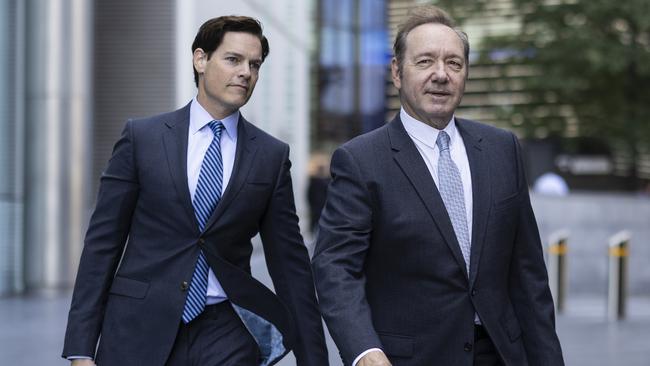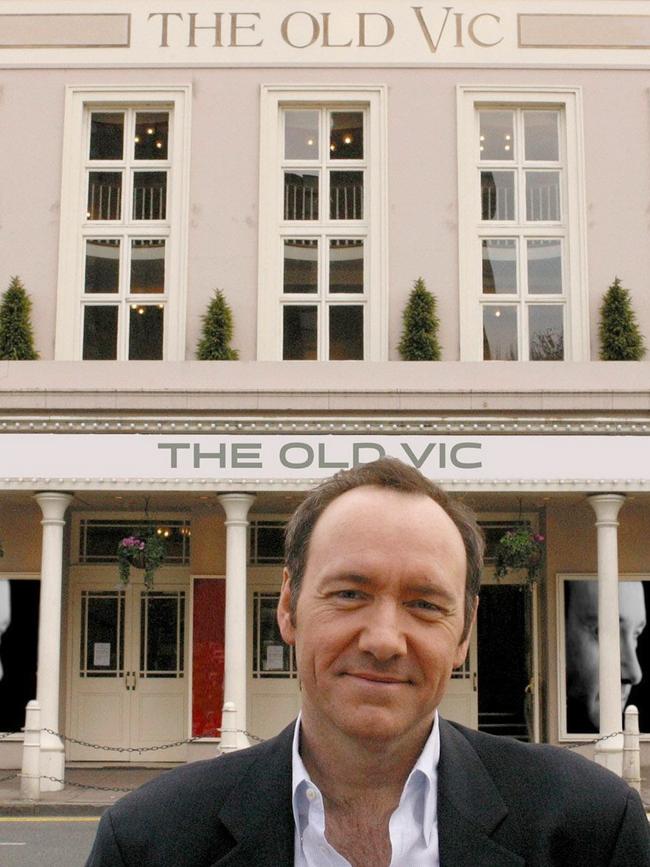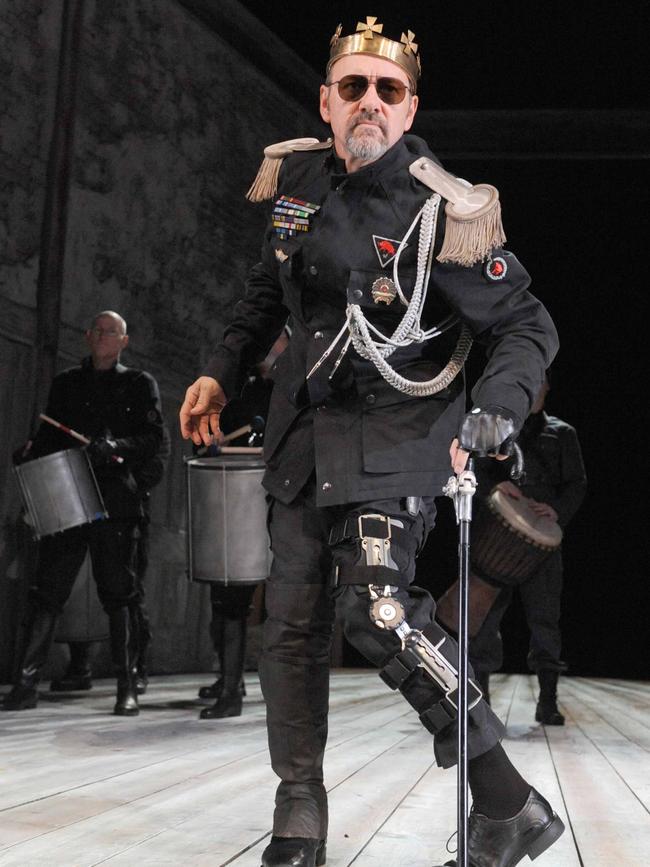Why Kevin Spacey’s artistry will survive this scandal

Spacey has said his work will last longer than he does. Lloyd disputes this and says John Dryden might have seemed bigger-time in 1700 than Shakespeare, but who knows Dryden these days? Who knows the great satirist Karl Kraus? Who remembers anybody.
It’s an argument that won’t hold up and is contradicted by the experience of any shirtsleeves critic who has engaged in the business of evaluation.
Take Dryden. You don’t have to be a hundred years old, you just have to have been in London in 1991 to have seen the great Diana Rigg play Cleopatra in Dryden’s Love for Love. It is not as great a play as Antony and Cleopatra but one which remembers it and at the same time creates a burnished and brilliant neo-classical masterpiece.
You would not have to go far to find someone who would tell you that if you want to taste Virgil’s Aeneid in English, Dryden captures it by some supreme principle of empathy. Arms and the man I sing, who, forced by fate / And haughty Juno’s unrelenting hate …
If some people have forsworn Alexander Pope’s poetry then they’re the poorer. The Dunciad was alive enough for Robert Hughes to use it as his model in his send-up of the New York arts scene. And now think of Shakespeare. Ben Jonson, who privately wished his rival had blotted a thousand lines, wrote of him as the soul of the age and compared him to the great Greek dramatists. Every major critic and scholar in the language edited Shakespeare, generation after generation. If you’re inclined to think criticism is just the vaunting of prejudice read Dr Johnson’s Life of Milton. Johnson thought John Milton wrote in a “babylonish dialect” and that “he writ not language”.
None of which is to deny that time can create its momentary erasures and mishaps. The other week a millennial who is old for his years told me no one under 55 could be expected to know who Glenda Jackson was, never mind her two Oscars and the fact she was arguably the very greatest female actor of her generation. She had not, like her contemporary Maggie Smith, done Harry Potter and bought herself a new allotment of fame.
Well, for heaven’s sake, fame needs to be judged within the purview of a developed interest in the art in question. Charles Laughton, the great English actor who played Captain Bligh in Mutiny on the Bounty and the Hunchback of Notre Dame, and wrote and directed one of the greatest of all American films, The Night of the Hunter, is not exactly a household name these days. Nor is James Mason, who made Odd Man Out, was Brutus to Marlon Brando’s Mark Antony and an extraordinary Humbert Humbert for Stanley Kubrick in Lolita, but you have to have an interest in the area to know who’s who. Another millennial was rightly thrilled by Who’s Afraid of Virginia Woolf? without knowing who Elizabeth Taylor and Richard Burton were.

Kevin Spacey made a number of films in which he acts magnificently. American Beauty, The Usual Suspects, Glengarry Glen Ross and Margin Call, and his Frank Underwood in House of Cards is one of the more memorable characterisations in the history of television – sublimely creepy and terrifying in its lethal serio-comic grandeur. I also saw him on stage a number of times. He was also the kind of actor’s actor who thought the stage had an equality if not a primacy, hence his extraordinary stint as the artistic director of London’s Old Vic, reviving Philadelphia Story and Eugene O’Neill’s The Iceman Cometh. Spacey’s actor-managership was an extraordinary act of devotion to the enduring glory of drama, the kind of thing that might get someone a peerage.
Before he was famous I saw him do Neil Simon’s Lost in Yonkers with Irene Worth on Broadway. Then at the Old Vic there was his pensive (not very actorish) Richard II in Blairite lounge suits, with his high-brocaded rhetoric and Trevor Nunn directing. Then there was his Richard III in Sydney for Sam Mendes with Gemma Jones as Queen Margaret. It did not exhibit the stealthy knife-edge whimsy you might expect in his Frank Underwood. It was viscerally and uncontrollably violent so that you feared for people on stage with him, lest they cop some kick in the stomach from this demonic madman.
Neither of these Shakespeare performances tallied with either my sense of the role or with the expectations Spacey’s persona created, but they each had a terrific force of delineation in the face of two of the most challenging roles ever written. I should add that I recall the look of hatred in his eye when I was introduced to him as a critic. Nor was I surprised when I heard that on the ship he was staying on in Sydney Harbour there was a stuffed toy he used to pummel. “We call him Russell,” he is, according to legend, supposed to have declared, adding another inch of malevolence to his image.

Well, images be damned. Spacey’s career has been effectively ruined since the first accusations were made. House of Cards melted away. Films were shot again. It is, for better or worse, a fact that a famous person who is accused of sexual misconduct has, by virtue of nothing but their fame, a vast capacity to bring ruin on their head.
I once heard great foreign correspondent Dame Ann Leslie, who recently died, say she was chased around a room as a girl by some dirty old man of a relative. But she said nothing because she didn’t want to ruin his life. We have come an immeasurable distance from this perspective but they will not forget Kevin Spacey, whatever the courts decide. He was and is a great actor.
Peter Craven is a cultural critic.







How strange it is the way we condescend to history and pretend time doesn’t matter because we have an undeveloped sense of it. Recently an Englishman, Will Lloyd, writing in the London Times and in these pages made the trials of Kevin Spacey – facing charges of sexual assault against men in the British courts – the occasion for a spiel against reputations established over time.